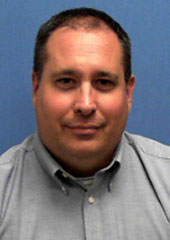The Genesee County Emergency Dispatch Center is on track to become one of the elite dispatch centers in the state, if not the country, with Director Steven C. Sharpe setting the bar high.
It's Sharpe's goal -- and has been since 2006 -- to have the dispatch center receive an Accredited Center of Excellence rating from the the National Academies of Emergency Dispatch.
No New York county has received an ACE rating since Monroe did it 18 years ago.
"It’s aggressive, but if you want to be the best and you want to say you’re the best, then you prove it by doing it," Sharpe said.
Sharpe, along with dispatchers John Spencer and Beth Hynes-Fisher will attend a training program in Orlando, Fla., in April that will provide the trio with more information on what it takes to win the accreditation as well as training in leadership, educating others and quality assurance. There will also be a series of classes on specific dispatch situations they can take.
The accreditation focuses on emergency medical dispatch, but Sharpe said the benefits go beyond sending ambulances out.
"The thing is, it doesn’t just effect our emergency medical dispatching," Sharpe said. "It makes us better dispatchers for police and fire as well.”
While achieving the accreditation is something Sharpe set his eye on as far back as 2006, he couldn't have dispatchers focus on the training during the years of moving into a new facility and consolidating with Batavia and Le Roy. Sharpe said his team started concentrating heavily on the accreditation in June and has already achieved a better than 90-percent compliance with protocols and calls. Accreditation requires at least 90-percent compliance on most calls and more than 95 percent on certain types of calls.
Part of the procedure required is that dispatchers go through a series of questions with callers in emergency medical situations. It's important for dispatchers to correctly assess the situation so they send the right personnel and ensure the emergency responders are properly prepared for what they might find.
"People often ask, 'why am I being asked all these questions?'" Sharpe said. "What we’re trying to do is find out what all the signs and symptoms are, and more importantly, give you instructions so you can help the person who is in need of assistance."
He said callers don't often understand that while one dispatcher is conducting the interview, another dispatcher is already starting an ambulance to the scene. Callers sometimes express concern that an ambulance isn't being sent right away, and that usually is not the case.
Sharpe joined the Sheriff's Office in December 2005 after eight years in the Air Force working in intelligence. He said his USAF background plays a critical role in how he approaches his job now.
"One of the core values of the Air Force is excellence in all we do and this is one of the things I carry over into here," Sharpe said "It’s what we expect of our dispatchers. It’s a very challenging job. It’s a very difficult job. It’s very stressful. But they hold themselves to such a high standard."
Dispatch Center photo is a file photo.

